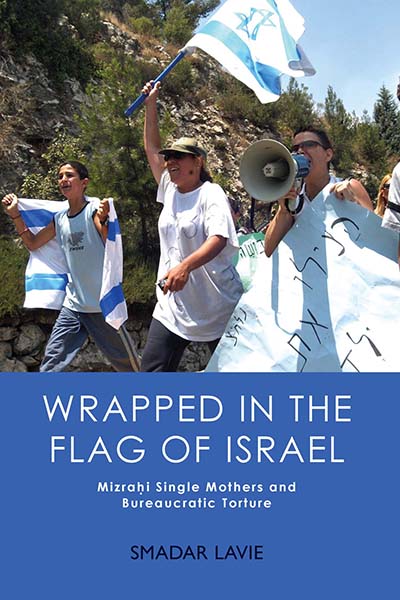Mizrahi Mothers, Wrapped in the Flag of Israel: Ultra-Nationalism and the Divinity of Bureaucracy in Israel
ASmadar Lavie
Professor of Anthropology
University of California, Berkeley
Thursday, October 29, 2015
4:30 p.m.
Scheuer Room, Kohlberg Hall, Swarthmore College (directions)
Israeli-American anthropologist Smadar Lavie will discuss her new book, “Wrapped in the Flag of Israel: Mizrahi Single Mothers and Bureaucratic Torture.” The Mizrahim are the Jews from North Africa and the Middle East who comprise Israel’s majority Jewish population. They suffer from systematic discrimination by Israel’s Ashkenazi Jews who drive Israeli policymaking. Lavie’s is the first English language ethnography about single mothers in the Middle East. This is one of the very few ethnographies about single mothers outside North America. The book explores Israel’s intra-Jewish racial and ethnic conflicts from a feminist perspective. It analyzes how the plight of Mizrahi single mothers relates to Israel’s occupation of the Palestinian territories, as well as its tensions with Iran and other neighboring Arab countries. Lavie uncovers the conundrum of loving and staying loyal to a state that
uses its bureaucratic system to repeatedly inflict pain on its
non-European majority who, despite this pain, is willing to sacrifice
their lives for what they conceive of as the state’s security.
Equating bureaucratic entanglements with pain—what, arguably, can be seen as torture, Smadar Lavie explores the conundrum of loving and staying loyal to a state that repeatedly inflicts pain on its
non-European Jewish women citizens through its bureaucratic system. The book presents a model of bureaucracy as divine cosmology and posits that Israeli State bureaucracy is based on a theological essence that fuses the categories of religion, gender, and race into the foundation of citizenship.

Sponsored by Peace and Conflict Studies, and Gender and Sexuality Studies

